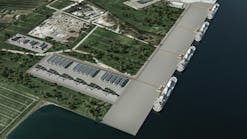Kansas State, Auburn and Virginia Polytechnic among universities gaining NRC funding for Next-gen and Small Nuclear R&D
The U.S. Nuclear Regulatory Commission this week announced it had awarded nearly $5.5 million in grants for university research projects around advanced and small modular reactor nuclear energy, science and engineering.
Among those 11 projects rewarded with NRC funding, at least five totaling close to $2.5 million were focused on university research into small modular reactor or next-gen nuclear technologies. SMR nuclear is seen as a potential alternative to continue building in carbon-free nuclear capacity but avoiding the massive costs of conventional, mega-sized projects such as the $27 billion Vogtle Units 3 and 4 expansion in Georgia.
The intent of the grants is to develop a workforce capable of supporting the design, construction, operation and regulation of nuclear facilities, and the safe handling of nuclear materials.
“The NRC is thrilled to offer grant opportunities that support future-focused research aimed at helping the agency prepare for upcoming challenges,” said Raymond Furstenau, director of the NRC Office of Research. “The number of responses received to the funding opportunity announcement has been outstanding. The grants program encourages careers and research in the nuclear sector, providing expertise to keep our nuclear facilities and materials safe and secure in the future.”
Among those research recipients include Kansas State University for its work on statistical learning and multiscale safety analysis for advanced reactors. Worcester Polytechnic Institute in Massachusetts also will gain NRC funding for its developing research facilities, shielding and licensing strategy for a next-gen hybrid and university nuclear reactor.
Purdue, Virginia Polytechnic Institute and Auburn University also had gained funding for respective projects around pressure vessels, core monitoring in advanced reactors and soil-structure interaction in small modular reactor projects.
Each of the NRC awards were in the $500,000 to $499,000 range. Other schools gaining funding include Clemson, University of Texas at Arlington, Virginia Commonwealth, Cincinnati, and University of Texas at Austin.
Utility-scale nuclear power projects generate 20 percent of the U.S. electricity mix and more than half of its carbon-free power, according to reports. Research groups such as Idaho National Laboratory and others are exploring the potential of small nuclear for net-zero microgrids.





